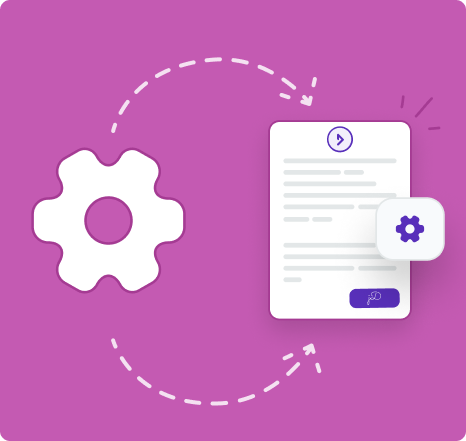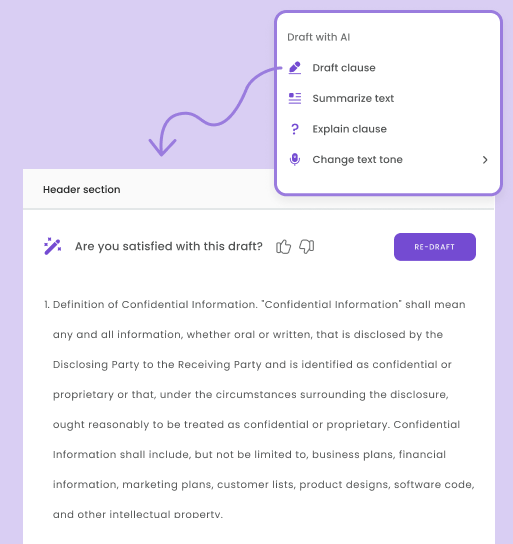Knowledge work, often referred to as a white collar job, has been around for a long time, but it’s starting to become more and more popular.
There has been a shift in more developed economies from manufacturing to knowledge work.
According to a 2021 study by Gartner, there were 100 million knowledge workers in the United States alone and over 1 billion globally.
That number has only grown since then.
Whether you’re looking to break into the job market, have a business that employs knowledge workers, or manage people, it’s important to understand knowledge work and the skills needed to succeed.
Characteristics of Knowledge Work
Knowledge work can be defined as tasks that require intellectual effort, problem-solving, and the application of specialized expertise rather than physical labor.
Unlike routine work, which follows predefined steps, knowledge work is complex, often unstructured, and driven by cognitive abilities.
Whether you’re conducting research, analyzing data, or developing strategies, your value comes from interpreting information and generating insights rather than merely executing repetitive tasks.
Problem-Solving and Decision-Making Focus
At the core of knowledge work is the ability to solve problems and make informed decisions. You frequently encounter situations where there are no clear-cut answers.
This requires you to dig into data and draw conclusions that may not be intuitive or obvious. A knowledge worker routinely assesses multiple factors, synthesizes information, and determines the best course of action.
Unlike transactional work that follows fixed standard operating procedures, knowledge work demands adaptability and analytical thinking to navigate uncertainty and drive meaningful outcomes.
To be clear, there are SOPs in knowledge work. They’re just not as heavily emphasized as in other types of work.
Dependence on Expertise and Critical Thinking
Your effectiveness as a knowledge worker depends on your expertise, experience, and ability to think critically. Rather than relying solely on instructions, a knowledge worker applies industry knowledge, logical reasoning, and creativity to tackle challenges.
This requires continuous learning and staying updated with evolving trends, as your ability to generate valuable insights is tied to your depth of understanding and ability to evaluate complex scenarios.
Use of Digital Tools and Technology
Technology is essential for modern knowledge work. It facilitates collaboration, automates repetitive tasks, and provides access to vast amounts of information.
Even if you’re not a knowledge worker, you likely rely on digital tools such as data analytics platforms, project management software, or artificial intelligence to streamline workflows and improve decision-making.
Mastering these tools allows you to work more efficiently, freeing up time for higher-level thinking and innovation.
Autonomy and Creativity
Task-based roles tend to follow strict guidelines. Knowledge work gives you a high level of autonomy in how you approach problems and achieve objectives. Oftentimes, your supervisors and managers will defer to your judgment on individual tasks.
You are expected to manage your own time, prioritize tasks, and develop innovative solutions without constant supervision. This freedom fosters creativity, as you experiment with new ideas, refine strategies, and contribute unique perspectives that drive progress in your field.
Examples of Knowledge Work
Research and Development (R&D)
In research and development (R&D), you engage in creating new products, refining existing technologies, and solving complex problems through experimentation and analysis.
Irrespective of the field, R&D requires critical thinking, creativity, and a deep understanding of specialized fields.
The work often involves testing hypotheses, interpreting data, and collaborating with experts to drive innovation and maintain a competitive edge in your industry.
Software Development and IT Management
In software development and IT management, teams create, maintain, and optimize digital systems that power businesses. Whether writing code, designing user interfaces, or managing cloud infrastructure, the work involves complex problem-solving.
Effective IT management also requires strategic planning to ensure cybersecurity, system reliability, and alignment with business goals.
Marketing, Content Creation, and Strategic Planning
In this instance, the role is to develop compelling messaging, engage target audiences, and shape brand strategies. Whether crafting digital campaigns, writing persuasive content, or designing market entry strategies, your work requires creativity, research, and analytical skills.
You interpret consumer trends, optimize outreach efforts, and adapt messaging to align with business objectives, ensuring that marketing initiatives drive tangible results.
Of course, there are many other types of knowledge work that aren’t represented here. If you’re wondering if what you do or your organization does is knowledge work, ask yourself if it requires thinking outside the box or if it’s mostly procedural. If it’s the former, it’s probably knowledge work.
Key Skills Needed for Knowledge Work
Critical Thinking and Problem-Solving
This is one of the most important skills of a knowledge worker. The ability to analyze complex situations and identify effective solutions is essential.
You frequently encounter ambiguous or multifaceted challenges that require logical reasoning and a structured approach. There are often situations where there are unknown and unknowns that can only be discovered through logical and critical thinking.
Evaluating information objectively, recognizing biases, and considering multiple perspectives help you make well-informed decisions. Strong problem-solving skills enable you to navigate uncertainty, break down complex issues, and develop actionable strategies.
Digital and Technical Literacy
Proficiency with digital tools and emerging technologies enhances your efficiency and ability to collaborate effectively.
Whether you use project management software, cloud-based collaboration platforms, or automation tools, your digital literacy directly impacts productivity.
Additionally, understanding data analysis, artificial intelligence, and cybersecurity fundamentals ensures that you can interpret insights, leverage technology-driven solutions, and stay competitive in a rapidly evolving landscape.
Communication and Collaboration
Clear and effective communication is a cornerstone of knowledge work. Whether conveying ideas through reports, presentations, or meetings, your ability to articulate insights influences decision-making and project success.
Beyond individual communication, collaboration across departments requires active listening, adaptability, and a willingness to share knowledge.
Strong interpersonal skills help you build relationships, align stakeholders, and foster a productive work environment.
Creativity and Innovation
Generating new ideas and unconventional solutions is at the core of driving progress in knowledge work. Creativity enables you to explore alternative approaches, challenge existing norms, and propose innovative strategies.
It doesn’t matter if you’re designing a novel marketing campaign, improving a business process, or developing a cutting-edge product, thinking outside the box allows you to find more effective and efficient ways to achieve goals.
Self-Management and Adaptability
Here’s what sets great knowledge workers apart. Some people are intelligent and can think creatively, but are unable to manage their tasks and priorities in an efficient manner.
Managing your time, prioritizing tasks, and maintaining productivity without constant supervision are key aspects of knowledge work.
With shifting priorities and evolving challenges, adaptability ensures that you can pivot when needed and stay focused on delivering value.
Continuous learning is equally important—staying up to date with industry trends, refining skills, and seeking professional development opportunities keeps you relevant and prepared for new challenges.
Research and Information Management
Your ability to gather, analyze, and synthesize information directly influences decision-making.
Whether conducting market research, evaluating competitors, or reviewing technical documents, knowing how to assess the reliability and relevance of data is non-negotiable.
Effective research skills ensure that your insights are well-supported and actionable, leading to more strategic and data-driven outcomes.
Emotional Intelligence and Leadership
Navigating interpersonal dynamics, managing conflicts, and influencing others require strong emotional intelligence. This goes beyond the role you occupy.
Understanding your own emotions and those of your colleagues fosters better collaboration and workplace relationships.
Leadership skills, even outside formal management roles, help you inspire teams, drive initiatives, and contribute meaningfully to organizational success. By demonstrating empathy, adaptability, and resilience, you enhance teamwork and overall productivity.
The Future of Knowledge Work
The Role of AI and Automation in Augmenting Knowledge Work
Artificial intelligence (AI) and automation are transforming knowledge work by enhancing efficiency, decision-making, and innovation.
Rather than replacing human expertise, these technologies serve as powerful tools that augment your capabilities.
AI-driven analytics help process vast amounts of data, identify patterns, and generate insights faster than traditional methods.
Automation reduces repetitive administrative tasks, allowing you to focus on higher-value work such as strategic thinking and problem-solving.
As AI evolves, a knowledge worker’s ability to leverage these tools effectively will determine how well they adapt to the changing landscape of knowledge work.
The Importance of Lifelong Learning and Upskilling
Continuous learning underpins knowledge work because industries evolve and technology advances.
The demand for specialized skills, such as data literacy, digital communication, and AI integration, is growing. To stay competitive, you must adopt a mindset of lifelong learning, regularly update your skills through professional development, online courses, and industry certifications.
Organizations are also recognizing the value of reskilling initiatives, ensuring that employees remain adaptable in an era where knowledge work is constantly shifting.
Those who actively seek new knowledge and refine their expertise will have a significant advantage in the future workforce.
Conclusion
Knowledge work is here to stay. Many innovations are occurring in the areas where knowledge workers are active which is creating a virtuous cycle of innovation, demand, and more innovation.
To succeed in the modern workforce, having the skills to do your job is not enough. You also need things like project management, prioritization, be conversant with many tools, and communication skills.
This guide has show you what you need as a knowledge worker or someone that hires and manages them.
If you want to make your team more efficient, take a look at DoxFlowy for your document automation needs so they can spend more time focused on the things that matter.




